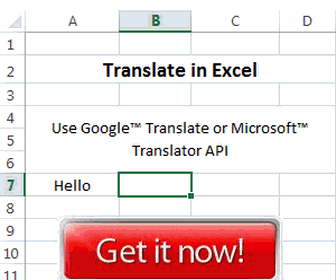Starting your own eCommerce store and marketplace is exciting. For one, it is easier to find customers online than when you have a brick-and-mortar store, and starting an eCommerce business is very lucrative.
However, before you dive headfirst into the digital marketplace, it’s crucial to grasp the various eCommerce business models that exist. Your eCommerce business model will serve as the compass guiding your path to success when you start your eCommerce business idea.
With the ever-expanding online commerce industry, the possibilities are as diverse as they are dynamic. From catering to individual consumers to forging intricate B2B connections, from peer-to-peer transactions to groundbreaking subscription services, the eCommerce landscape is brimming with options.
Your chosen path can determine the scale, focus, and approach of your online enterprise. So, the question remains, what are the types of eCommerce businesses?
Let’s find out!
10 Types of eCommerce Businesses
If you’re considering launching an eCommerce business, it’s crucial to understand that there are various eCommerce business models to choose from. The specific model you opt for will greatly impact the nature and operation of your online venture.
Understanding these diverse eCommerce business models is the first step towards shaping your online venture. The choice you make should align with your business goals, target audience, and the nature of your products or services.
So, take your time to explore your options, research thoroughly, and choose the model that best suits your eCommerce aspirations.
1. Business-to-Consumer (B2C)
The Business-to-Consumer (B2C) model is perhaps the most recognizable face of eCommerce. In this model, businesses sell their products or services directly to individual consumers.
Think of the giants like Amazon, eBay, and Walmart, whose online storefronts have become digital shopping havens for millions.
One of the significant advantages of the B2C model is its vast potential audience. You can offer a wide array of products or services, appealing to a broad consumer base.
This model excels in convenience, personalization, and accessibility, as customers can make purchases from the comfort of their homes. This makes it a great choice for entrepreneurs looking to reach the masses.
2. Business-to-Business (B2B)
The Business-to-Business (B2B) eCommerce model is tailored to transactions between businesses. It’s an intricate world, often involving bulk orders, long-term contracts, and complex supply chains.
If your business specializes in providing products or services to other companies, the B2B model is your domain. B2B eCommerce offers numerous benefits, such as increased order values and loyalty among corporate clients.
The longer eCommerce sales cycles, coupled with fewer but more substantial transactions, require a different approach to eCommerce marketing and customer relationship management.
3. Consumer-to-Consumer (C2C)
In the Consumer-to-Consumer (C2C) model, individuals can sell products or services directly to other consumers through an intermediary platform. Think of eBay and Etsy, where everyday people turn into online entrepreneurs, offering their goods to a broader audience.
This model thrives on creating a marketplace for peer-to-peer transactions. It’s an excellent choice if you want to facilitate online trade between individuals while taking a commission or fee for connecting buyers and sellers.
4. Consumer-to-Business (C2B)
Consumer-to-Business (C2B) flips the traditional B2C model on its head. Here, individual consumers provide products or services to businesses. This is often seen in the gig economy, where freelancers, influencers, and content creators offer their expertise or content to companies.
C2B is dynamic and opens up a wide array of possibilities for both individuals and businesses. It’s particularly prevalent in the world of influencer marketing, where individuals collaborate with brands to promote products or services.
5. Subscription Model
The subscription model revolves around selling products or services on a recurring basis. This can encompass a range of offerings, from streaming services like Netflix to monthly subscription boxes filled with curated goodies.
Subscriptions provide businesses with predictable revenue streams, making it easier to forecast finances and plan for growth. Customers appreciate the convenience and often become loyal, long-term subscribers.
6. Dropshipping
Dropshipping is an eCommerce model that lets you act as an intermediary between consumers and suppliers. You sell products without holding physical inventory, which can significantly reduce upfront costs and logistical challenges.
However, success in dropshipping hinges on careful supplier selection and maintaining exceptional customer service.
7. White Labeling
White labeling is an excellent choice if you want to focus on branding and marketing while outsourcing production and product development. With white labeling, you sell products or services created by another company under your own brand, allowing you to concentrate on building a strong brand presence.
8. Marketplace Model
Marketplaces like eBay, Amazon, and Airbnb connect buyers and sellers but don’t sell products themselves. This model is perfect for those interested in creating a platform where other individuals or businesses can sell their products or services.
9. Social Commerce
Social commerce integrates eCommerce into social media platforms, enabling users to purchase products directly through social networks. This approach leverages the power of social connections and eCommerce marketing to expand your customer base.
10. Niche-Specific Models
In some cases, the standard models might not suit your niche or target audience. This is where the beauty of eCommerce shines, allowing you to create a unique model tailored to your specific business needs.
Specialized marketplaces and niche-specific models, like flash sale sites and industry-specific platforms, have found success by catering to distinct market segments.
Navigating the eCommerce World
Whether you aim to serve individual consumers or other businesses, offer peer-to-peer marketplaces, collaborate with influencers, or curate subscription boxes, there’s a model tailored to your vision and objectives.
The flexibility and adaptability of eCommerce make it possible for aspiring entrepreneurs and established businesses alike to find their niche and prosper.
Success in eCommerce doesn’t hinge solely on choosing the right model but also on understanding your target audience, developing a strong online presence, providing excellent customer service, and staying adaptable in a rapidly changing marketplace.
Remember that the eCommerce landscape is not one-size-fits-all. The best model for your business will depend on your industry, target audience, and the unique value you bring to the market. So, take the time to research, plan, and choose the model that aligns most closely with your objectives.



















